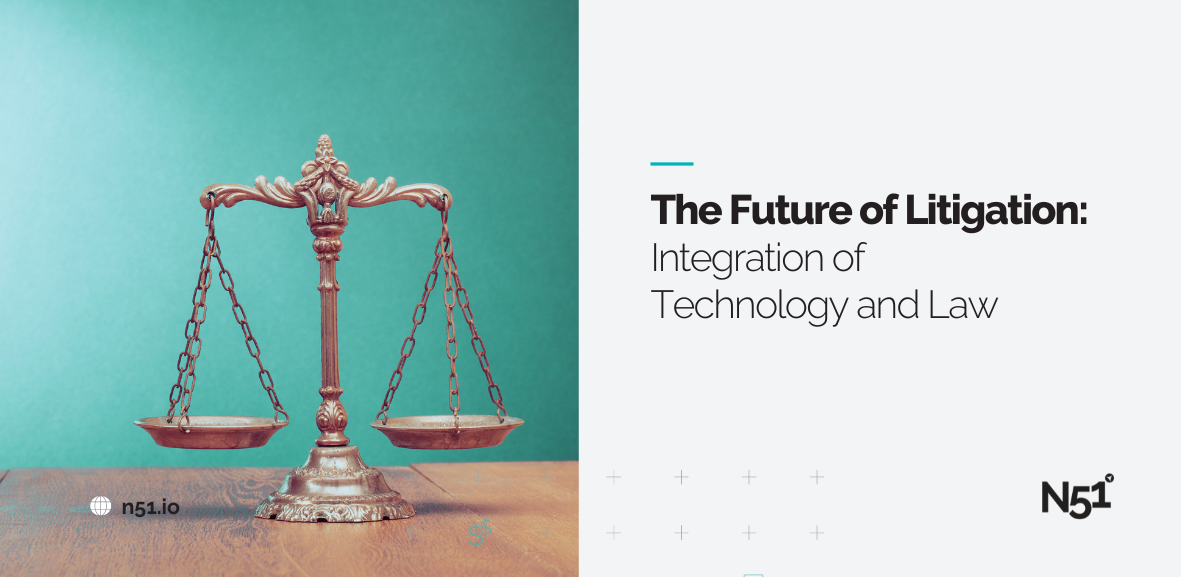The Future of Litigation: Integration of Technology and Law

The legal field is undergoing a significant transformation, driven by rapid advancements in technology. The integration of technology and law is reshaping the landscape of litigation, offering new tools and methods to enhance efficiency, accuracy, and accessibility. This article explores the future of litigation through the lens of technological integration, examining its impact, benefits, and the challenges that lie ahead.
The Impact of Technology on Litigation
Technology is revolutionizing every aspect of litigation, from case management and evidence gathering to courtroom procedures and legal research. The digital age has introduced a plethora of tools that streamline processes, reduce costs, and improve outcomes. Some of the most impactful technological advancements include:
1. E-Discovery and Document Management: E-discovery tools have transformed the way legal teams handle vast amounts of data. These tools can quickly identify, collect, and analyze relevant documents, significantly reducing the time and effort required for manual review. Advanced search algorithms and AI-driven analytics help uncover critical evidence, streamline document management, and enhance the accuracy of information retrieval.
2. Artificial Intelligence and Machine Learning: AI and machine learning are playing a pivotal role in modern litigation. Predictive analytics can forecast case outcomes based on historical data, aiding in decision-making and strategy development. AI-driven tools can also assist in legal research, drafting documents, and identifying relevant case law, improving efficiency and reducing human error.
3. Virtual Hearings and Courtrooms: The COVID-19 pandemic accelerated the adoption of virtual hearings and remote court proceedings. Virtual courtrooms offer flexibility, reduce travel costs, and increase accessibility for participants. As technology continues to advance, virtual hearings are likely to become a permanent fixture in the legal landscape, offering a more efficient and inclusive approach to litigation.
4. Blockchain and Smart Contracts: Blockchain technology offers secure and transparent methods for recording transactions and verifying information. In litigation, blockchain can be used to ensure the integrity of evidence, create immutable records, and facilitate smart contracts that automatically execute terms when predefined conditions are met. These applications enhance trust and reduce the potential for disputes.
5. Data Security and Privacy: With the increasing reliance on digital tools, data security and privacy have become paramount. Advanced encryption methods, secure communication platforms, and robust cybersecurity measures are essential to protect sensitive information and maintain client confidentiality. Ensuring compliance with data protection regulations is also critical in the digital age.
Benefits of Technological Integration in Litigation
The integration of technology into litigation processes offers numerous benefits:
Efficiency and Cost Savings: Automation and digital tools streamline labor-intensive tasks, reducing the time and cost associated with litigation. This efficiency allows legal teams to focus on higher-value activities, such as strategy development and client advocacy.
Accuracy and Consistency: AI-driven tools enhance the accuracy of legal research, document review, and case analysis. By minimizing human error and ensuring consistent application of legal principles, technology improves the overall quality of legal services.
Accessibility and Inclusivity: Virtual courtrooms and digital communication platforms increase access to justice, allowing participants from diverse geographic locations to engage in legal proceedings. This inclusivity fosters a more equitable legal system.
Enhanced Decision-Making: Predictive analytics and AI-driven insights provide valuable data to inform legal strategies and decision-making. By analyzing historical trends and case outcomes, legal professionals can make more informed and strategic choices.
Transparency and Trust: Blockchain technology and secure digital records enhance transparency and trust in the legal process. Immutable records and smart contracts reduce the potential for disputes and ensure the integrity of evidence.
Challenges and Considerations
While the integration of technology in litigation offers significant advantages, it also presents challenges and considerations:
Ethical and Legal Implications: The use of AI and predictive analytics raises ethical questions about bias, fairness, and accountability. Ensuring that AI systems are transparent, unbiased, and aligned with ethical standards is crucial.
Data Security and Privacy: Protecting sensitive information from cyber threats is a paramount concern. Legal professionals must implement robust cybersecurity measures and comply with data protection regulations to safeguard client data.
Adaptation and Training: The rapid pace of technological change requires legal professionals to continually adapt and acquire new skills. Ongoing training and education are essential to ensure that legal teams can effectively leverage new tools and technologies.
Regulatory and Compliance Issues: As technology evolves, so too must the legal and regulatory frameworks that govern its use. Ensuring that legal technology solutions comply with existing laws and regulations is a complex and ongoing challenge.
The integration of technology and law is reshaping the future of litigation, offering new tools and methods to enhance efficiency, accuracy, and accessibility. By embracing technological advancements, legal professionals can improve the quality of legal services, reduce costs, and increase access to justice. However, navigating the ethical, legal, and practical challenges associated with technological integration is essential to realizing its full potential. The future of litigation lies at the intersection of technology and law, and those who adapt and innovate will be best positioned to thrive in this evolving landscape.
Let's talk
Get in touch with us by filling the form below and one of our team members will be in touch shortly.

VERDICT.png)
RockBottom.png)
2025.png)
UPDATEAI.png)

CATL.png)
INDIACARBON.png)
INDIA.png)